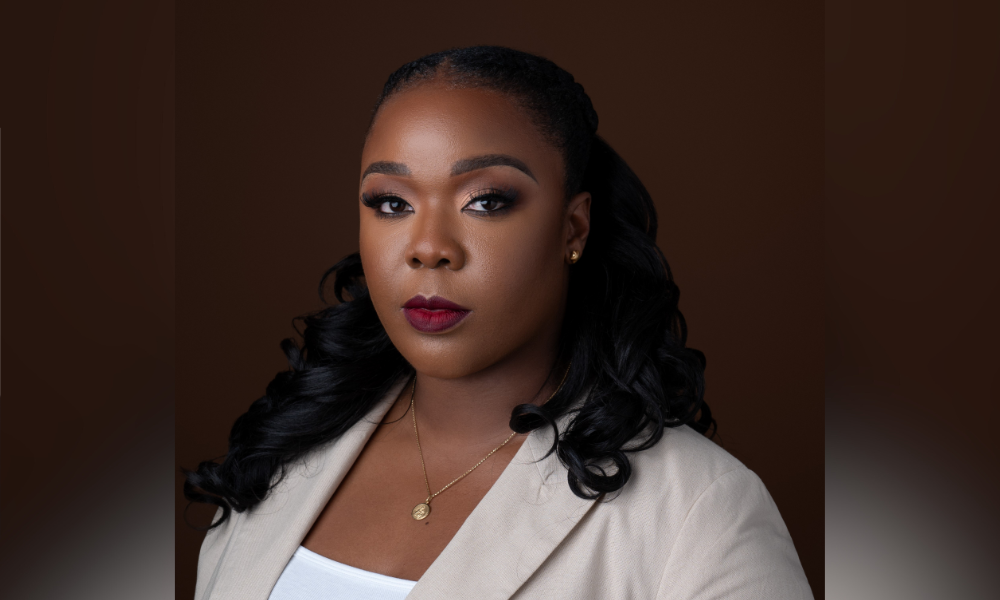
SaskTel's HR director on AI, authenticity, and staying human in a changing profession

Although Isioma Coker didn’t plan on a career in human resources, she is one of those rare HR professionals who came to the industry early, getting an undergraduate degree, then a master’s, in HR.
“I was going to be an environmental engineer,” she said. “I did like building things, but I just wasn’t engaged.” That’s when she visited the school’s career counselling centre and took a Myers Briggs Personality Test that gave her three options: HR, nursing, and environmental engineering.
She took an introductory HR course and everything clicked: “I fell in love and never looked back, and that’s how I found myself in HR.”
That engineering mindset didn’t go to waste, in fact Coker says it’s shaped how she tackles challenges in HR and plays a big part in why her career has seen success.
“I have a very logical approach to solving problems, and so when people give me an issue, especially people issues, they're typically big, I then have to break it down in my head to some sort of methodical, how is this building to where it's going to go?” she says.
“That's definitely the engineer, science part of my brain that definitely helps in terms of how I approach issues, how I solve for problems, and how I tackle things.”
Coker, who worked at Procter & Gamble and Shell before starting as SaskTel’s HR director of industrial relations, compensation and benefits, and job evaluation, credits her career to that dual ability.
“I'm able to do the compassionate part of HR, the human part of HR, but also be that business logical … not just seeing it only from an emotions perspective [but] how does this add to the bigger picture?”
With over 15 years in HR under her belt, Coker has experienced firsthand the ways HR has evolved, especially over the last several years.
It’s one of the topics Coker addressed at HRFutureFest, where she participated in a panel on quiet quitting and workforce engagement.
“HR has definitely evolved, from just being the supportive, deals with payroll kind of admin thing, to really, how do you help the business transform How do you project manage? How do you change manage? How do you lead the organization to its business goals through that?” she says.
“It's important that even as we evolve, that we don't lose the ‘human’ in HR, because that's still a key necessary driver for the business to actually get engagement, drive retention, and actually achieve the success of all these different projects and things that we're trying to accomplish.”
Maintaining that human element of HR holds true when it comes to change management and communication, she stresses. With AI taking a bigger role in HR, Coker says the real challenge isn’t the tech – it’s how it’s introduced.
“I tell people all the time that the most important thing with any sort of change is you have to look at it from the employee lens and think about what's in it for them,” she says.
“If we if we're rolling out AI, and we're talking about how it's going to drive efficiency in the organization, well of course people are going to be scared, and people are going to think about their jobs, and they're not going to be willing to embrace that technology.”
However, communicating instead about the benefits that AI will bring to everyday tasks is key, she says; “All those repetitive, mundane tasks that you spend so much of your time doing, AI can actually help you with that. And then you start to get a different approach, in terms of people being curious about it and wanting to see how that's possible.”
Even with all the changes in HR, Coker makes sure she stays centred by drawing a “hard boundary” between her personal and work life, and encouraging her team to do the same.
“Because I've tried to do the focus on work and exert yourself all the time, and it doesn't work for me,” she says.
“So I do ask that people take the time to try and get to know themselves, find out what it is that actually makes you tick.”
For her, recharging outside of work is non-negotiable, and necessary to be able to be a high performer professionally.
“I get my energy, my recharge, from spending time with my family, from being active with my church, from … connecting with my people,” she says.
“When I'm at work, I work hard, I work smart, I work efficient. So that's why, when you hear ‘AI’, I'm like, ‘Give it to me. What else can it help me take off my plate?’ And I think just staying curious and being able to learn, that's what's helped.”